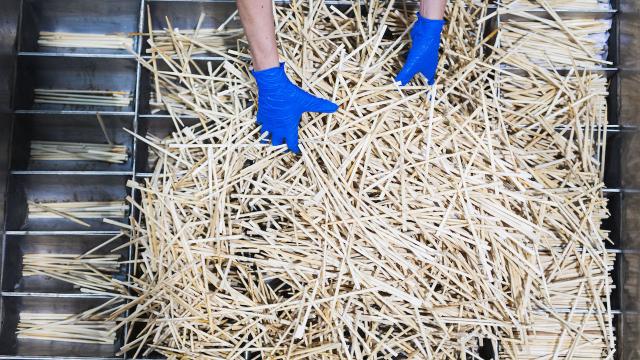ChopValue reckons there’s a better place for your used chopsticks than the bin.
The Canadian startup has labelled itself “the world’s first circular economy franchise recycling chopsticks into furniture and homewares”. Its business proposition is just that: use old chopsticks as material to make something new.
ChopValue is this month looking to launch in Australia, after already having success in the UK and Singapore.
On a mission to redefine the term ‘waste’ to ‘resource’, ChopValue collects chopsticks from businesses such as restaurants, schools, offices and hotels that otherwise would have ended up in the landfill. The raw material is engineered in their Microfactories for a second life as furniture, home décor and office solutions. And games. Yessss.

The startup has already recycled 47 million chopsticks that otherwise would have ended up in landfill.
ChopValue says there’s actually nowhere, or no one, in Australia that currently measures or recycles used chopsticks. I guess it’s found a niche.
“We urban harvest used chopsticks. Our resource is what others may view as waste – that means we don’t take virgin materials from our environment. Every chopstick is perfect, slender and defect-free, making them ideal to develop an innovative engineered material,” the company says.
“When designing products, our mindset has been circularity and longevity. This allows us to minimise our environmental impact while creating sustainable solutions engineered to last.”
Why not just compost the chopsticks?
Well, according to ChopValue, from an emissions perspective, composting generally will emit the embodied carbon content of the chopsticks back into the air as CO2.
Given that bamboo is a fast-growing grass, it is actually one of the best materials to use for carbon sequestration, the startup says. But to continue sequestering the carbon, its life needs to be extended as long as possible.
And from a ‘circular economy’ perspective, ChopValue said composting would still be the last resort of circular solutions.
“In general, recovery of energy or nutrients is the last cascade in the circular cycle. On the other hand we are taking the material to the highest and best cascade, where we increase the value of the material exponentially,” it said.
Basically, using recycled materials is just as good as creating products out of virgin materials, but with a better result for the environment.
